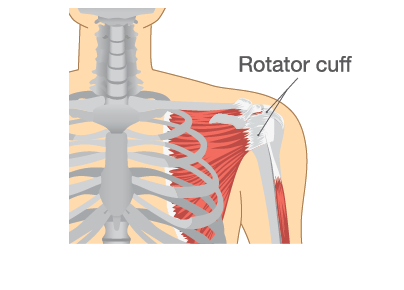Shoulder Impingement Surgery
What is Shoulder Impingement?
Shoulder impingement is a common source of shoulder pain that occurs when the bones of the shoulder catch and pinch pieces of tendon or bursa in the shoulder joint. Sports commonly cause shoulder impingement or swimmers shoulder. Not only is there a mechanical issue from the tissues getting in the way of proper functioning, but pain and inflammation will follow as tissue is damaged over time. Left untreated a shoulder impingement will cause damage from mechanical wear and inflammation leading to other issues such as tendonitis of the shoulder, which can lead to a rotator cuff tear, as well as shoulder bursitis.
Symptoms of Shoulder Impingement
People that use overhead motions on a regular basis are at increased risk of developing a shoulder impingement and once it develops those motions are going to be harder, due to developing muscle weakness, to complete and accompanied by sharp pain. Reaching overhead, lifting overhead, and reaching behind your back is going to aggravate the impingement and display the symptoms.
Arthroscopic Shoulder Impingement Surgery
When to Consider Shoulder impingement surgery
Conservative treatment of a shoulder impingement is going to include over the counter NSAIDs, for pain and inflammation, and specific stretches to try and properly align the tissues and release the impingement. A doctor can monitor the development of the condition as well as show you how to fix it or prescribe physical therapy for treatment; they may augment treatment with subacromial joint injections of corticosteroids and anesthetic. Rest from repetitive overhead activity will be needed to avoid aggravating the inflammation. One stretch that is helpful is to reach your arm behind your back and make a thumbs up pointing towards your head. In this position of the thumbs up with the back of your hand against your spine, reach upward as far as you can towards your head. In addition, injections of steroids into the joint may also help relieve inflammation and make the impingement more likely to release. If your situation does not improve with treatment in six weeks or so a visit to an orthopedic surgeon for consultation of intervention would be appropriate to consider.
Shoulder impingement surgery procedure
Shoulder impingement surgery is usually a minimally invasive arthroscopic procedure in which the shoulder joint is expanded to relieve pressure on the soft tissues being pinched. The surgeon will remove and bone spurs and clean up the joint if there is any damage. Small amounts of acromion bone will be removed on the underside, facing the joint, to increase the available space for the joint to function without compression. This procedure is called a subacromial decompression. In addition, the removal of an inflamed and enlarged bursa may be considered as well as a rotator cuff repair if needed. Some cases if extensive enough may require an open procedure instead of arthroscopy, but due to advancements in medical technology many procedures are done in a minimal invasive manner.
Shoulder Impingement Surgery Recovery
Recovery from a shoulder surgery can be painful and last from two months up to a year depending on many factors including the age and health of the patient, arthroscopic vs. open surgery, and the extent of the repair that was needed to bring the shoulder up to standards. A sling will be worn during the initial healing phase and then a regiment of physical therapy will be required to gain flexibility of the shoulder as well as restore strength to the upper extremity. Patients over forty are at increased risk of swelling of the tissues leading to a frozen shoulder during periods of decreased mobility of the shoulder joint; surgical recovery is a common situation in which frozen shoulders manifest themselves. Frozen shoulders do resolve with conservative treatment and rarely progress to surgical intervention after a shoulder decompression surgery.
Considering Shoulder Impingement Surgery? AOA Orthopedic Specialists serves North Texas and beyond! 817-375-5200


